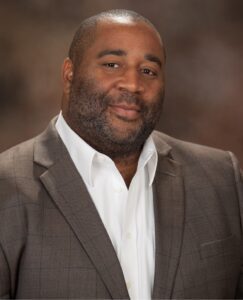
As a kid, I lived on the “right side of the tracks.” My dad was a lieutenant colonel, one of the only African American officers of that rank in the military base where I grew up – and that meant I was one of the only black kids in my neighborhood and my school.
The base wasn’t explicitly segregated by race, but it was segregated by rank. I learned to live with the undercurrents of racism in every part of my life, including seeing the way people would salute my dad with a veneer of respect – but also surprise and disdain. It was also knowing I could be pulled over in my own neighborhood if I ever went driving after dark.
That kind of discrimination is hard to see unless you experience it yourself. That is why it’s critical to start conversations about racism – because so many people simply don’t realize what’s going on until you tell them, “it looks fair, but it’s not.”
When I started my career in Florida’s foster care system, I joined a community of dedicated people who wanted to help kids of every race and ethnicity. But when you look at the data, you’ll see a different story: If you’re African American, or black, you’re more than twice as likely to be investigated as a white family following an abuse report.
The inequality doesn’t end there. Once in foster care, black children are 2.2 times more likely to be placed in out-of-home care, away from the support of a loving family – and they stay in out-of-home care, on average, 55% longer than white children. Although black Floridians comprise about 17% of Central Florida’s population, more black children than any other population reside in group homes.
When kids are taken from the familiarity of their schools … their friends … their favorite playgrounds, they lose a critical support system. It damages the community, too – and leaves vulnerable children with nowhere to truly call “home.”
Why does this happen? It’s not a matter of casting blame. We all have implicit bias, and that doesn’t mean we’re bad people: It just means we need to be honest with ourselves and look for where we can improve. As humans, how can we appropriately, compassionately and fairly resolve this issue?
To answer that question, we founded Embrace Diversity – a movement to create a fairer child welfare system, starting with our own agency and expanding from there throughout the system of care we manage and into our community.
After the death of George Floyd and the protests for racial justice across America, Embrace Families launched a series of healing initiatives with the Peace and Justice Institute of Valencia College. Since then, we’ve worked to create greater awareness of bias through staff training and other programs.
Embrace Diversity has already sparked conversations with our foster care system partners throughout the U.S., and has led to a review of our internal policies and procedures to ensure fairness. Future initiatives will focus on impacting legislation and child intake protocols to prevent bias from influencing child welfare decisions. We’re also planning to expand our base of vendors to include more businesses owned by people of color, and working to recruit more foster families, adoptive families and mentors from diverse backgrounds.
I work in foster care because I love what we do: helping families overcome tough issues, learn to connect and persevere, and pursue their “happily ever after” – whatever that means for them.
But to make that happen, we need to ensure that every child has a fair chance at a bright future. This is not an issue of blue or red; it’s not conservative or liberal. It’s about fighting to give kids the opportunities they deserve – and everyone can be part of the solution.
Mike Bryant is Chief Operating Officer at Embrace Families, Central Florida’s nonprofit lead agency helping families overcome the root causes of abuse and neglect through programs that offer case management and other prevention services.


